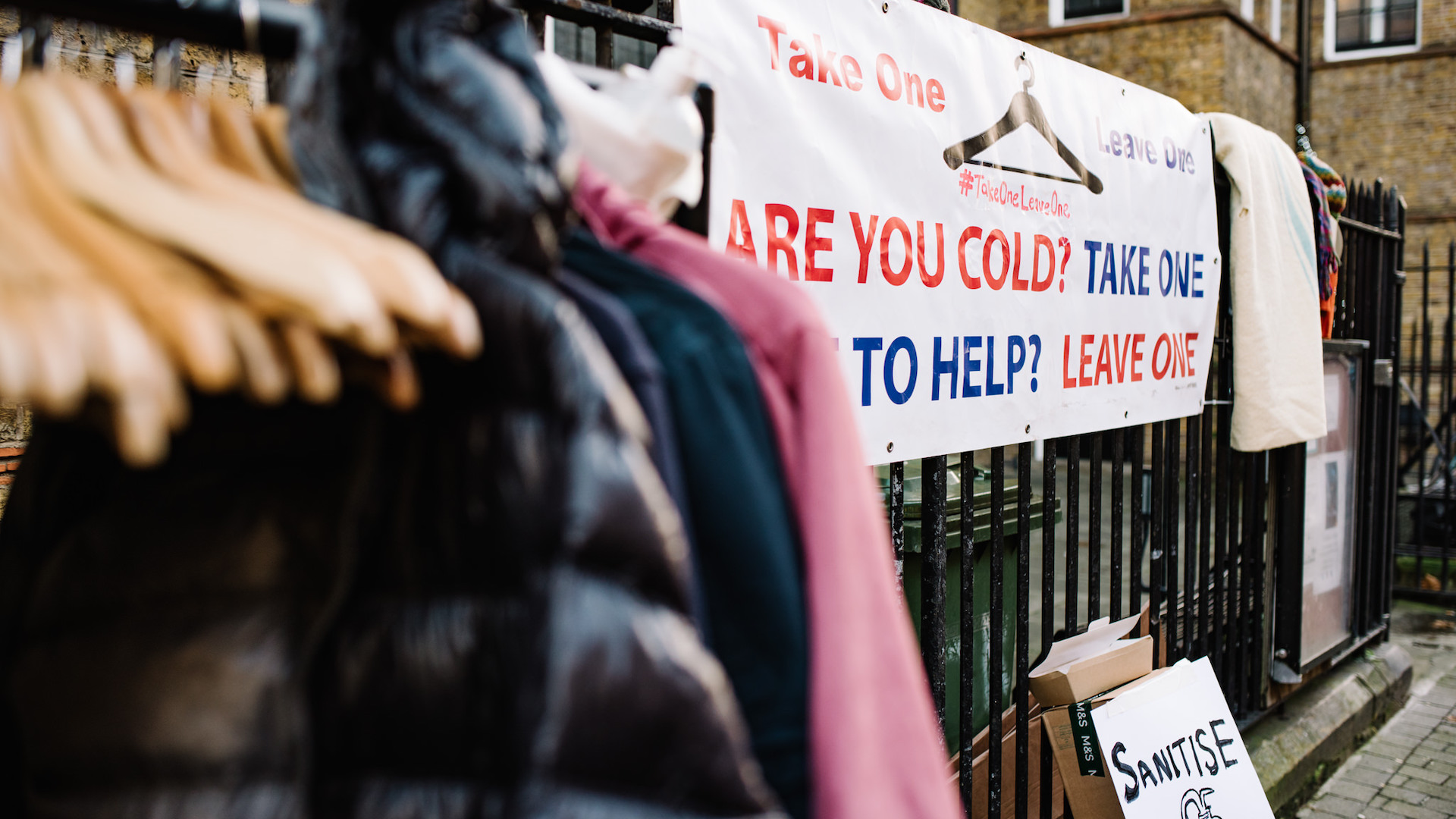Meanwhile two million people are behind on their fuel bills, according to Citizens Advice, with 600,000 people plunging into fuel debt since Covid-19 hit the UK.
And many disabled people on so-called legacy benefits such as Employment Support Allowance and Income Support have been forced to choose between eating and staying warm during the pandemic, according to the Disability Benefits Consortium.
In a report on the Government’s refusal to extend the £20 Universal Credit increase to legacy benefits, the Disability Benefits Consortium said two thirds (66 per cent) of the people they surveyed were having to cut back on food or go without heating their homes.
“It’s for anyone in need,” Simanowitz said. “On Saturday we were approached by a taxi driver who collected some warm clothes for himself and his family.
“He said because he’s not getting enough fares, he’s struggling. What’s happening with furlough and Covid is pushing so many people into difficulty. Good, warm clothes aren’t cheap, so these clothes are for anyone who needs them.
“It’s about showing human kindness to each other at a time when it’s quite difficult to do that.”
Advertising helps fund Big Issue’s mission to end poverty
And in the depths of lockdown, communities have been quick to act on the idea to support those struggling under the weight of Covid-19 poverty.
“We brought the launch [at London’s Exmouth Market] forward when lockdown was announced and we knew people would be out there on the streets with even less support,” the founder said. “It’s been really encouraging to see how quickly it took off this year. People really want to help.”
Some of the newest Take One Leave One rails are in areas of London such as South Hampstead, Peckham, Bexleyheath, Brixton, Finsbury Park and Vauxhall. Another was set up in Bristol with support from electronic band Massive Attack and there are more in Newcastle and Sunderland.
“The key is that it’s simple and doesn’t need explaining,” Simanowitz said. “And once people see it, they can set up their own.”
Given the current circumstances, volunteers with PPE and hand sanitiser man the rails, and all donations are washed and checked for suitability. Most rail teams will find more people in need visiting by the second or third week, he said, when word of the scheme has spread.
Advertising helps fund Big Issue’s mission to end poverty
“You see the need pretty clearly,” Simanowitz said. “We’re getting a huge number of deliveries and so many people who need those clothes.”
But Simanowitz is clear also that Take One Leave One is no replacement for the structural support desperately needed by thousands across the country.
It’s an old idea, helping people. But we’re using new technology in a new way that allows people to organise themselves. They just need that little spark of an idea
“This is a sticky plaster, we don’t pretend this is a solution to the problem,” he said. “It needs to be tackled by government action.
“But in the meantime this is a way that people can show love. A volunteer who has taken the time on a Saturday to set up a stand, or someone who’s taken time to bring clothes down, that’s love in action.”
The Take One Leave One team sends resource packs including tips for #TakeOneLeaveOne signs to anyone interested in setting up a rail for their own community, and can direct them to buy a sturdy recognisable banner for £20 if they can’t make their own.
Simanowitz hopes the idea will spread, not just around the UK but around the world. He is confident kind neighbours will take action whenever people are struggling to make ends meet through cold winters.
Advertising helps fund Big Issue’s mission to end poverty
“It’s an old idea, helping people. But we’re using new technology in a new way that allows people to organise themselves. They just need that little spark of an idea.”





